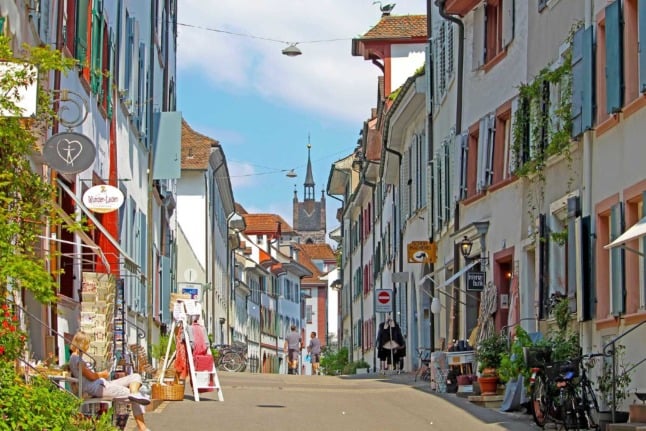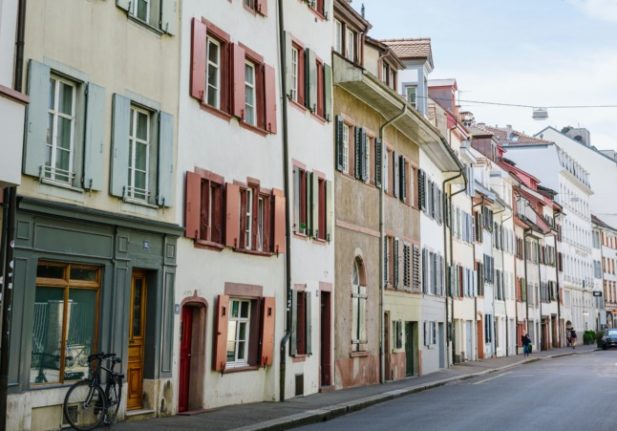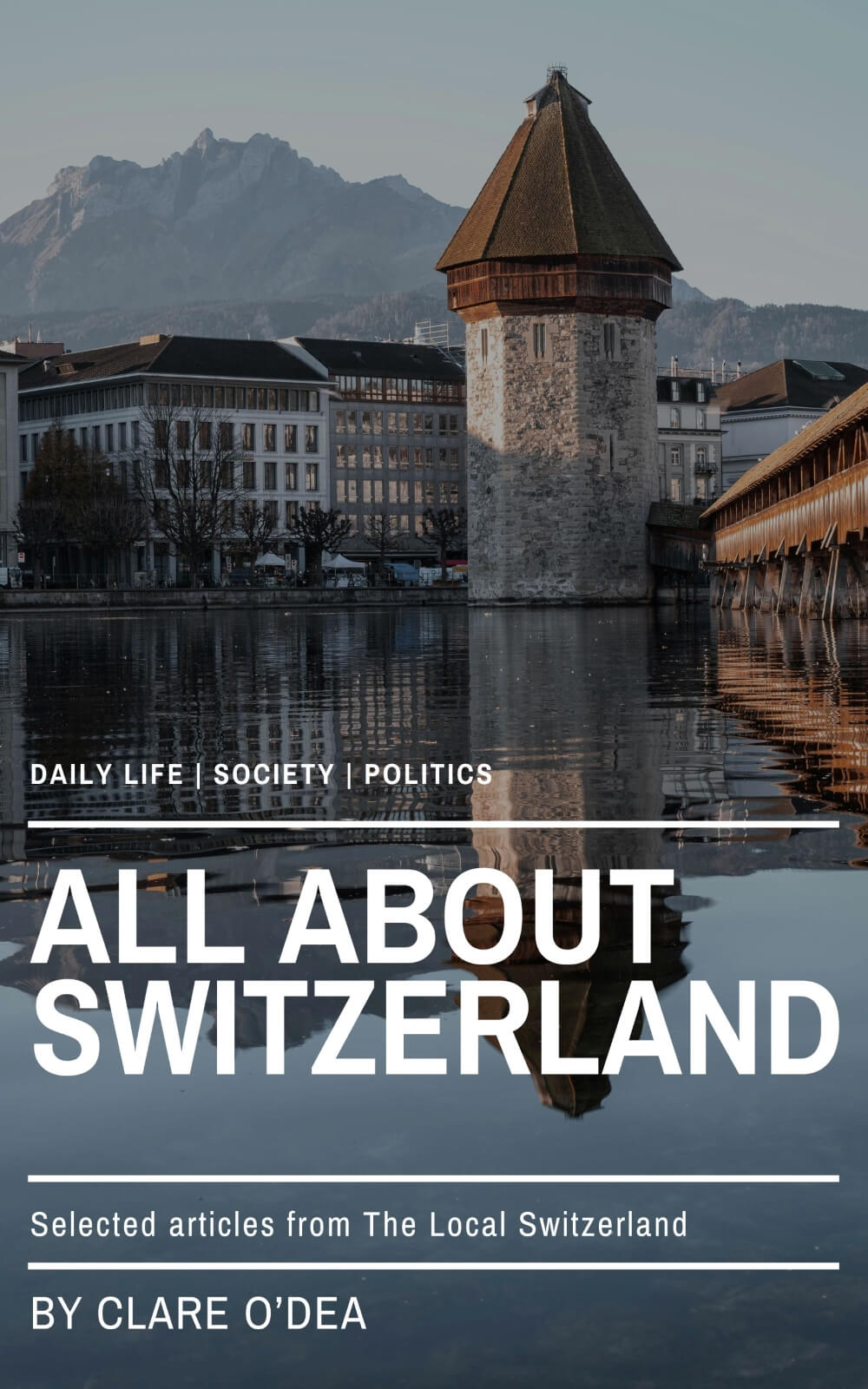With international travel rebounding from the Covid pandemic, short-time rentals have again become popular.
Home stay sites such as Airbnb have changed travel dramatically, allowing people to put their homes up for rental for short or medium-term periods.
While this has been a welcome income stream for many, it has also led to concerns of rising rents and ghost towns in city centres.
As a result, governments and city councils across Switzerland and abroad have put in place regulations to try and get control of short-term rental markets.
Here’s what you need to know about the rules for Airbnb in Basel.
Don’t live in Basel? Here are the rules in Geneva and Zurich, as well as on a nationwide basis.
EXPLAINED: Can I rent my apartment on Airbnb in Geneva and what are the rules?
EXPLAINED: What are Switzerland’s rules for Airbnb rentals?
EXPLAINED: Can I rent my apartment on Airbnb in Zurich and what are the rules?
Is Airbnb legal in Switzerland – and what do I need to know?
Airbnb is legal in Switzerland and grew consistently in popularity up until the pandemic hit in early 2020.
In 2017, Airbnb recorded more than 900,000 guest arrivals, an increase of 300 percent over the previous three years.
There were 35,800 Airbnb flats and homes in Switzerland in 2018.
In Switzerland, short-term rentals are regulated at federal, cantonal and local level. This means that while some rules are the same nationwide, they are stricter in certain areas – particularly those popular with holidaymakers.
READ MORE: Eight things you need to know before renting in Switzerland
An effort to relax federal rules was defeated in 2019, despite widespread support by most Swiss cantons, the Swiss tenants association, the Swiss federation of trade unions and the left-wing Socialist Party and, with reservations, by the centre-right Christian Democrats.
The rules on whether you can rent out your apartment on Airbnb will not only differ from canton to canton, but they are different depending on whether you own your apartment or you are renting it.
What are the specific rules in Basel?
In order to rent your apartment on Airbnb or other short-term sites, you need to be aware of both cantonal and federal rules, although sometimes these overlap.
In many cases you will need to report to your cantonal authorities that you are hosting guests. For instance, the Federal Act on Foreigners and Integration (Foreigners and Integration Act, AIG) (s16) states that commercial accommodation provides need to provide details of each guest to cantonal authorities.
The canton of Basel City imposes a tourist tax of CHF4 per night. Everyone older than 12 who is not a resident of Basel City must pay this tax.
The money is automatically collected by Airbnb and paid to cantonal authorities.
This money goes towards maintaining infrastructure in the canton.
Please note that if you stay longer than 31 days, you will not need to pay the overnight tax. If you have been charged tax, please ask for a refund at the following link.
One benefit of paying the tax is that guests will get access to the BaselCard, giving them free public transport, free wi-fi and discounts on entry to cultural facilities.
This is the responsibility of the property owner, so you will need to register and apply for BaselCards to be sent to the property.
More information is provided at the Airbnb Basel page here.
Can I sublet my rented apartment via Airbnb in Switzerland?
Some of the other rules for Airbnb rentals fall within the federal law on subletting in Switzerland.
Swiss subletting law allows someone to sublet their apartment if they are “temporarily unable to use their rental property due to unforeseen circumstances”.
Importantly, in each case the tenant needs to get permission from the landlord in order to do so. Written consent is not a requirement, but will be helpful in the case of a dispute.
The landlord is free to refuse to consent in certain circumstances, for instance if the tenant is believed to be “abusing” the rental contract.
According to Swiss legal consultancy WEKA, this “abuse” usually means where someone is making a profit by renting their apartment.
The law was designed to allow tenants to offset some of the financial damage of unforeseen circumstances, meaning that landlords will be free to refuse permission if someone is regularly renting their property out as a holiday rental.

On the other hand, a landlord’s hands may be tied if someone needs to go abroad on short notice – for instance due to illness in the family – and wants to offer the costs.
In this case – and as long as the tenant is not making a profit – the landlord cannot refuse consent.
However, most holiday rentals will not fit within this classification.
As reported by Swiss news outlet Tages Anzeiger, the major consideration of the courts is whether or not a profit is being made on the rental when compared to the monthly rental costs.
This applies whether you are renting one room or whether you are renting your entire flat.
Of course, the landlord is free to consent to holiday rentals if he or she deems it fit. The above refers to the circumstances in which consent may be withdrawn or denied.
Reader question: Does owning a second home in Switzerland give me the right to live there?
Those who have successfully sublet their flats through holiday rental sites in Switzerland have often come to an agreement with their landlord regarding the conditions of rental, i.e. how often it will be rented, the price, specific conditions and which rules the subtenants need to follow.
Keep in mind however that landlords hold all the cards in these situations, so it’s important to keep them onside.
What if I don’t tell my landlord?
Subletting your flat without telling your landlord is contrary to almost all rental agreements, meaning that you are putting yourself at risk of termination or an expensive legal dispute.
The landlord can also demand the profits you have made with the sublet.
Tenants will also be held liable for damage caused by subtenants in almost all cases.
I own my flat. Can I rent it on Airbnb in Switzerland?
While you might think that you are allowed to rent out your apartment if you own it, this is not true in every case.
If you own your own home outright, then you will be able to rent part or all of it as much as you like (subject to cantonal rules).
The money made will be considered income and you will be taxed on it, however you can deduct maintenance and operating costs. If you make more than 100,000CHF per year, you will need to pay VAT.
You can also deduct a flat rate of 20 percent of your rental income if the apartment or house is furnished (which it really should be as few Airbnb guests want to bring their own furniture).
If you are however part of a condominium association – i.e. a collective for owner-occupiers – there may be provisions in your contract which prevent or restrict you from renting your apartment, even if you own it outright.
The law on this is relatively unclear at the moment. Swiss housing site Houzy noted in 2020 that the law is still behind the times on this.
A court case in 2019 held that a condominium association agreement could prevent you renting your flat, however this depends on the contract and such a restriction will not be upheld in every case.
Will this change in the future?
The growing popularity of Airbnb along with rising rents has seen a growing demand for legal reform, however this has repeatedly been rejected by the Federal Council.
In addition to the Swiss Home Owner’s Association (HEV), hotel groups have also been prominent opponents of legal reform.
Given that the trend in larger cities and holiday areas has been to put in place greater restrictions rather than relaxed rules, it is unlikely that and substantial changes will take place in the near future.
Swiss hotels, restaurants and work canteens are pushing for the unvaccinated to be served in different areas, with some having already implemented separate areas for the two.
The Covid certificate requirement is prompting restaurants in Switzerland to find new ways to accommodate all customers.
Please note that this is intended as a guide only and does not constitute legal advice.





 Please whitelist us to continue reading.
Please whitelist us to continue reading.
Member comments